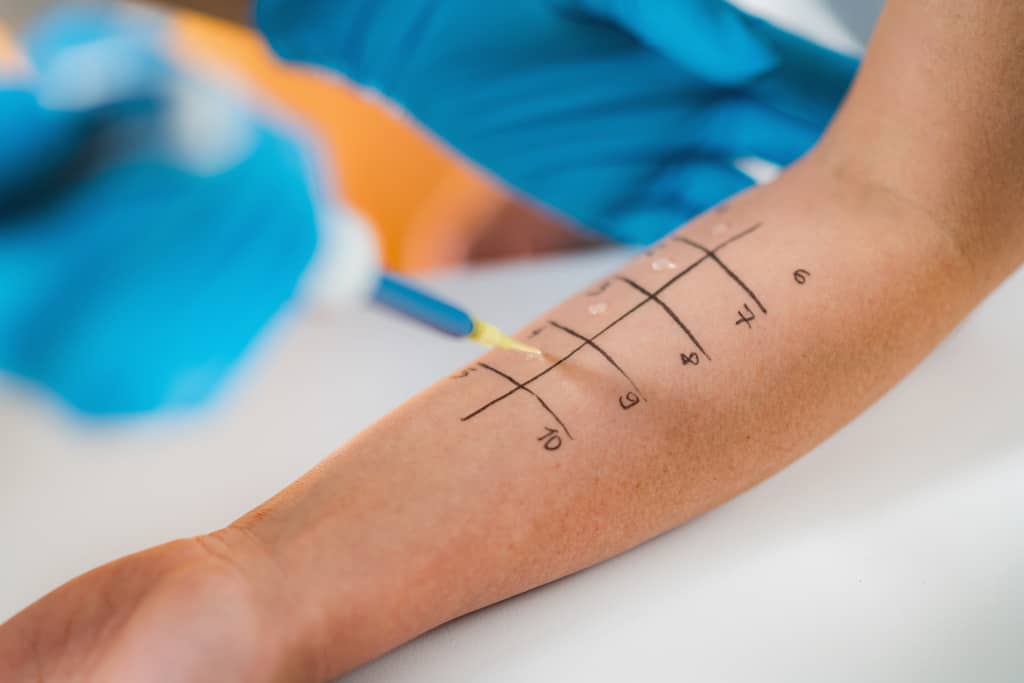Do you ever wonder why certain substances make you sneeze, itch, or experience other uncomfortable symptoms? You could be getting allergy symptoms.
Allergies affect millions worldwide. To maintain optimal health, it does help to understand their causes and management for those who get the symptoms.
For this blog post, we’ll explain signs that may indicate the need for allergy tests. We’ll also walk you through different types of allergies, and available testing methods.
If you want to go straight to allergy testing in Singapore, we created a separate guide for you. Follow this link to access it: https://healthclinicgroup.com/allergy-testing/.
What is the Definition of Allergies?
Many people wonder, what are allergies? And, how do you tell if it’s allergies or something else? Here’s something that may help;
Allergies are your body’s over reactive response to substances called allergens. These allergens can be found in various forms. For example, they can be found as;
- Pollen
- Dust mites
- Pet dander, or even
- Certain foods
When you come into contact with an allergen, your immune system perceives it as a threat. It would then respond by releasing histamines and other chemicals.
This is what causes the allergic symptoms. Please, keep in mind that allergies can vary in their intensity and impact on individuals.
How do you tell if it’s Allergies or Something else?
For starters, it may not be easy to tell allergies from other symptoms. For example, colds and respiratory allergies share an awful lot of similarities.
Yet, you still have to identify allergy symptoms to be able to determine whether you may need an allergy test. So, how do you tell if it is allergies or something else? Here are five pointers to pay attention to;
- Eye Symptoms: If you experience puffy, itchy, and watery eyes along with your other symptoms, it is more likely to be allergies rather than a cold. This is because, it is less likely to get puffy, itchy or watery eyes with colds.
- Duration of Symptoms: Allergy symptoms tend to persist for extended periods. In fact, they can last for more than ten days. Conversely, cold symptoms typically improve seven to ten days. So, if your symptoms have persisted for like more than seven days, it may be time to see an allergist for testing.
- Triggers and Timing: Allergies are often triggered by specific situations or exposures. For example, your symptoms may be triggered just by being around pets, pollen, or certain foods. That said, you could be experiencing allergic reactions if your symptoms consistently occur at specific times or in certain situations.
- Itching: This is one of the most common indicators of allergies. It isn’t usually associated with colds. So, chances are you’re having an allergic reaction if you’re experiencing itchiness in your eyes, throat, nose, or skin.
- Nasal Discharge: Pay attention to the consistency of your nasal discharge. Allergies often cause clear and watery nasal discharge. On the other hand, colds may produce thicker and yellowish mucus.
Women may experience allergies differently than men. Some studies actually suggest that hormonal fluctuations may play a role.
For example, women may notice their allergies worsening during certain phases of their menstrual cycle. Paying attention to these symptoms and their patterns can provide valuable insights.
When should you Consider Allergy Testing?
It isn’t easy to tell exactly when you need an allergy test. Nonetheless, it is crucial if you want to understand the triggers behind your symptoms. Here are instances when you may want to consider allergy testing:
- Persistent or Recurrent Symptoms: If you experience persistent or recurrent symptoms, such as nasal congestion, sneezing, itching, or hives, that last beyond a typical cold or seasonal illness, it’s a good indication to consider allergy testing. Identifying the specific allergens causing your symptoms can guide targeted treatment.
- Unclear Triggers: Allergy testing can provide valuable insights for your allergic reactions. This is especially true when you’re unsure about your specific triggers. Thanks to an allergy test, you can pinpoint the substances or allergens you are sensitive to.
- Severe Allergic Reactions: Anaphylaxis is severe allergic reaction which can be life-threatening. Getting an allergy test in Singapore may be warranted if you have a history of severe allergic reactions. You will need to identify the trigger allergens to avoid future exposure and take necessary precautions.
- Allergies Impacting Daily Life: When allergies significantly impact your daily activities, quality of life, sleep, or work performance, allergy testing can offer a clearer understanding of the underlying causes. With the test results, your doctors can develop a personalized treatment plan addressing your specific allergies.
- Inadequate Response to Medications: It is wise to schedule your allergy test in Singapore if your symptoms persist even with OTC medications or standard treatments. In such cases, allergy testing can help identify the allergens triggering your symptoms. Your allergy specialist can then use this information to recommend more targeted and effective treatment options for you.
What are the most Common Allergy Tests?
There are several tests that can be used to assess your allergy symptoms. The most common methods include;
- Skin prick tests: These tests involve exposing your skin to small amounts of suspected allergens. The allergist would then observe any allergic reactions to arrive at a diagnosis.
- Blood tests: Example tests in this group include the specific IgE test. These tests are used to measure the presence of allergen-specific antibodies in your blood.
- Patch tests: These are typically used to diagnose contact dermatitis caused by allergens in substances like metals, fragrances, or preservatives.
Closing Thoughts
Knowing when to get an allergy test could be all you need to be on top of any potential allergies. So, get that test if you feel that you need it!
And if unsure, don’t hesitate to seek professional advice. A skilled allergist will assess your concerns and help you understand if an allergy test in Singapore is warranted.
Take control of your allergies and reclaim your life. Schedule an allergy consultation with the Health Advisory Clinic today to identify triggers, receive personalized treatment, and live symptom-free. Don’t let allergies hold you back. Call or visit us at:
The Health Advisory Clinic
One Raffles Place, #04-49
1 Raffles Place, Singapore 048616
https://healthclinicgroup.com/
Tel: (+65) 6226 6442





